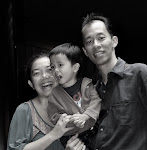 More investors turn to equities due to low bank rates and fewer options
More investors turn to equities due to low bank rates and fewer options| By Alvin Foo, Markets Correspondent |
THE equities industry has gained tremendously because of the global financial crisis, said the head of a key stockbroking company in Singapore.
Investors - faced with near-zero bank deposit interest rates and fewer alternative options for their funds - have turned to stocks in a big way.
This trend is set to continue, even as Western funds are expressing more interest in Asian stocks.
DBS Vickers chairman and chief executive Edmund Lee told The Straits Times: 'Our industry has benefited in a very big way, because there are only two asset classes that have performed in the last 12 months - equities and property.'
His company was named the best retail broker at the Securities Investors Association of Singapore (Sias) awards earlier this month.
In Singapore, the surge in the Straits Times Index (STI) bears witness to the renewed interest and liquidity in stocks. Last week, the index hit a 13-month high, crossing the 2,700-point mark. It has recouped all of the losses incurred since the sharp selldown following the collapse of Lehman Brothers.






